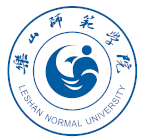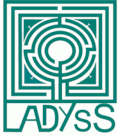Home > News > Ecohealth and conservation workshop 2016, Kunming

Ecohealth and conservation workshop 2016, Kunming
The integration of eco-epidemiology in the concept of one-health, the success achieved by systems approach usually applied to the study of diseases in other areas than understanding the ecology of pathogen transmission (rodent pest control, conservation biology of endangered species, etc.) and the fact that disease transmission is increasingly thought to be the result of the (socio-eco) systemic integration of links between the health of all species and that of their environment, the difficult (or impossible), and infinitely debatable definition of the concept of "health", leave open a very fertile field of research.
This field of research and application is being popularized in the term "Ecohealth". A basic tenet is that health and well-being cannot be sustained in a resource depleted, polluted and socially unstable planet. This is why Ecohealth scholars and practitioners engage in integrated systems approach to health that sustain ecosystem health services, foster social stability and promote the peaceful interdependence, coexistence and evolution of humans, animals, plants and their environments.
To do so, it is essential to develop parallel paths, bridges and sustainable long-term interactions, between disciplines and sectors that can contribute to these studies.
This is typically the goal towards which the GDRI EHEDE evolves, and the issue of this workshop.

Keywords: data management, ecohealth, ecology of echinococcoses and cysticercosis, elephant ecology, genetic and immunological markers, graph theory, landscape changes and ecological impacts, multi-agent simulation, risk assessment, time-series and remote sensing, trophic ecology, small mammal pests, snub-nosed monkey, space-time analyses and modelling, wildlife - human conflicts, etc.

Attendees from:
- France: University of Bourgogne Franche-Comté, CNRS, IRD, INRA
- China: Yunnan University of Finance and Economics (YUFE), Beijing Normal University, East China Normal University, Xinjiang Medical University, Lanzhou Veterinary Research Institute - Chinese Academy of Agricultural Sciences, China Forest Research Institute, The Gaoligong Shan Nature Reserve
- UK: Salford University, Edge Hill University
- Australia: Australian National University
- Japan: Asahikawa Medical University
- Singapor: Singapor National University
- etc.
Time table
| November, 6 | |||
| 08:30-09:30 | Registration (and presentation preview for speakers) | ||
| 09:30-10:00 | Opening Ceremony | ||
| 10:00-10:30 | Ecohealth and the GDRI EHEDE. What’s up? | Patrick GIRAUDOUX | |
| 10:30-11:00 | Coffee/tea break | ||
| 11:00-11:30 | Biodiversity conservation strategies and priority area analysis in China | Diqiang LI | |
| 11:30-12:00 | Learning from the past: a historical approach for a better understanding of environmental changes | Emmanuel GARNIER | |
| 12:00-12:30 | Land use change and its impact on the conservation of wild Elephas maximus in China during the past 40 years | Peng LIU, Hui WEN, Franziska K. HARICH, Changhuan HE, Lanxin WANG, Xianming GUO, Jianwei ZHAO, Aidong LUO, Hongpei YANG, Xiao SUN, Shao-Bo ZHENG, Jing GUO, Li ZHANG | |
| 12:30-14:00 | Lunch | ||
| 14:00-14:30 | Primate conservation and ecohealth | Yongcheng LONG, Li LI, Hong ZHANG | |
| 14:30-15:00 | Habitat fragmentation and conservation of the Black and White Snub-nosed Monkey in Yunnan | Wenwen LI, Gongsheng WU, Céline CLAUZEL, Yongcheng LONG, Patrick GIRAUDOUX, Li LI | |
| 15:00-15:30 | Essentiality of wildlife studies in understanding the transmission mechanism of zoonoses in China | Zhenghuan WANG, Lichen ZHOU, Xu WANG, Jiayu LIU, Tianhou WANG | |
| 15:30-16:00 | Coffee/tea break | ||
| 16:00-16:30 | Epidemiology and control of Echinococcosis in the Northwest of China and Central Asia | Hao WEN | |
| 16:30-17:00 | 27 year monitoring of an alveolar echinococcosis hotspot in south-Gansu | Patrick GIRAUDOUX, Eve AFONSO, Jenny KNAPP, WanZhong JIA, HongBin YAN, DaZhong SHI, YuMin ZHAO, Anne-Claude GOYDADIN, Dominique RIEFFEL, Tao JING, Philip S. CRAIG | |
| 17:00-17:30 | A spatiotemporal epidemiological investigation of the impact of environmental change on the transmission dynamics of Echinococcus spp. in Ningxia Hui Autonomous Region, China | Angela M. CADAVID RESTREPO, Yu Rong YANG, Donald P. McMANUS, Darren J. GRAY, Tamsin S. BARNES, Gail M. WILLIAMS, Ricardo J. SOARES MAGALHẪES, Nicholas A.S. HAMM, Archie C.A. CLEMENTS, Archie CLEMENTS | |
| 17:30-18:00 | YUFE - UFC agreement signature ceremony | ||
| November, 7 | |||
| 08:30-09:00 | Long term monitoring, systems approach and the French “Zones ateliers” | Patrick GIRAUDOUX and Hervé FRITZ | |
| 09:00-09:30 | Towards the control of neurocysticercosis: challenges in rural and remote endemic regions | Akira ITO and the working group on cestode zoonoses in Asia and Africa | |
| 09:30-10:00 | Landscape, Microtus sp. and alveolar echinococcosis in the Yili Valley, Xinjiang, China | Wenbao ZHANG, YongZhong GUO, Jianjun MA, Alxin KADEL, Ahmati CALI, JunQi JIA, Mardan MAHEMTI, Yingmei SHAO, Yanyan HOU, Hao WEN | |
| 10:00-10:30 | Coffee/tea break | ||
| 10:30-11:00 | Ecological and environmental protection in Yunnan province by natural disaster reduction (2015-2020) | Hongjiang LIU, Zhenwei QIAN, Ruowei ZHOU, Yunxian LI | |
| 11:00-11:30 | Methods in genetics to investigate E. multilocularis transmission patterns | Jenny KNAPP, Gérald UMHANG, Benoît VALOT, Francis RAOUL, Sylvie DAMY, Patrick GIRAUDOUX, Laurence MILLON | |
| 11:30-12:00 | 10 Years for Recovery Chinese water deer in Shanghai area | Min CHEN, Endi ZHANG | |
| 12:00-14:00 | Lunch | ||
| 14:00-14:30 | Landscape phenology and habitat discrimination: random forests and MODIS time series imagery for E. multilocularis transmission host modelling | Christopher MARSTON | |
| 14:30-15:00 | Non-invasive genetic tools to study wildlife populations | Eve AFONSO, Renaud SCHEIFLER, Jean-Christophe FOLTETE, Anne-Claude GOYDADIN, Li LI, Patrick GIRAUDOUX | |
| 15:00-15:30 | Graphab: A software dedicated to the modelling of landscape network | Xavier GIRARDET, Céline CLAUZEL, Li LI, Jean-Christophe FOLTÊTE | |
| 15:30-16:00 | Coffee/tea break | ||
| 16:00-16:30 | New approaches to description and modeling of trophic interactions: reliable allies to study trophically-transmitted parasites? | Francis RAOUL, Antoine PERASSO, Virgile BAUDROT, Benoit VALOT, Eve AFONSO, Jenny KNAPP, Justine MARIOTTE, Patrick GIRAUDOUX | |
| 16:30-17:00 | Coupling agent based with equation based models for studying explicitly spatial population dynamics | Patrick GIRAUDOUX, Christophe LANG, Nicolas MARILLEAU | |
| 17:00-17:30 | Seasonal variation in sediment load from Mingyong Glacier catchment, Yunnan, China | Laihsia BOEY, Xixi LU, Healther FAIR | |
| 17:30-18:00 | Closing Ceremony | ||
Contacts
Patrick Giraudoux, Chrono-environment, University of Franche-Comté & LWMEH - Yunnan University of Finance and Economics
Li Li, LWMEH - Yunnan University of Finance and Economics
Read more









